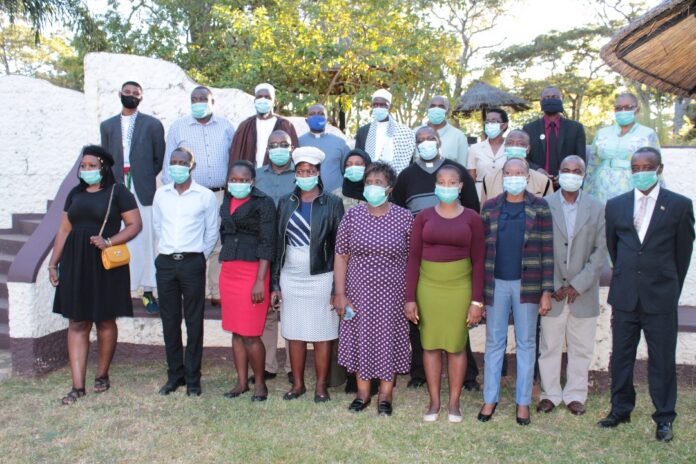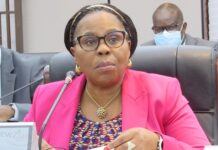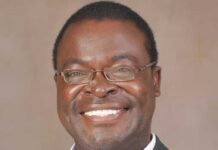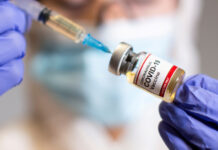
Herzel Mushayabasa.
Traditional and religious leaders have committed to work with government in the fight against the deadly COVID-19 virus promising to battle misinformation affecting vaccination programmes in Zimbabwe.
In a bid to dispel the misinformation and misconceptions, the leaders also received their inoculations during an interfaith dialogue hosted by the Ministry of Health and Child Care, UNICEF and the Apostolic Women Empowerment Trust.
The leaders were also adopted as vaccination champions for their respective communities.
The interfaith dialogue was convened to leverage support for the COVID-19 vaccine roll out and recovery.
The leaders were drawn from prominent religious groups including Christian, Islamic and the African traditional religions.
According to UNICEF chief of communications James Maiden: “Faith leaders are critical partners in addressing many known barriers to the uptake of health and other essential services, including vaccines.”
He said as vaccination champions, the leaders agreed to model and promote positive attitudes and behaviours towards vaccinations.
They will also articulate trust in accurate information, engage followers to address faith-related barriers and help congregants to understand how vaccines work.
During the dialogue, participants reflected on misinformation, distrust and barriers including social, religious and cultural barriers contributing to vaccine hesitancy.
Leading the conversation, AWET national director Tendayi Gudo said: “Understanding and addressing these barriers is key for our partnership with local faith actors, increasing their abilities to counter false claims or address religious questions or other sensitive topics.”
The leaders also noted with concern that the spread of unfiltered information and misinformation has undermined people’s trust in the COVID-19 vaccines.
Zimbabwe Council of Churches research, innovations and programme development director, Ronald Nare said faith leaders had a responsibility to provide a fresh understanding and insights about the vaccines.
“We must mobilise faith groups to take direct actions to promote the well-being of children, families and the communities they serve,” he said.
This, he said, was in line with UNICEF’s Faith for Positive Change for Children, Families and Communities Strategy that states.
“Religious leadership holds some of the deepest and most trusted relationships with their communities and, as skilled and influential communicators, they can significantly move the hearts and minds of millions and in turn shape behavioural and cultural practices.”
Supreme Council of Islamic Affairs in Zimbabwe president, Sheikh Ishmael Duwa was the first Islamic leader in Zimbabwe to receive the vaccine in public.
“I am a sharing my vaccination experience to Islamic followers and Zimbabweans at large to prove that these vaccines are safe and taking them is how we can protect our children, families and communities from this pandemic,” he said.
Phyllis Manungo from the Seventh Day Adventist church said she would use knowledge gained at the meeting to play a leading role in challenging misinformation circulating through our congregation platforms and social media.
She said should also promote trust in accurate information sources such as Ministry of Health and Child Care and UNICEF.
The faith leaders who attended the three-day workshop endorsed government’s COVID-19 vaccination campaign and pledged to play an active role in boosting community trust in the science behind the vaccines.
They also committed to enlisting their communities in joining efforts to combat the spread of the virus.
Approximately 80 percent of Zimbabwe’s population regularly attend church and religious leaders are best positioned to champion and support COVID-19 vaccination programmes.
The UNICEF Global Faith for Positive Change Initiative recognises the central role and influence of religious leaders in behaviour and social change communication.
Through the partnership with AWET, over 850 interfaith and community leaders have been trained to support, engage and mobilize their communities about integrated COVID-19 prevention and continuity of essential health, nutrition, education, child protection and WASH services.
The initiative aims to reach five million people across all provinces of Zimbabwe.

















